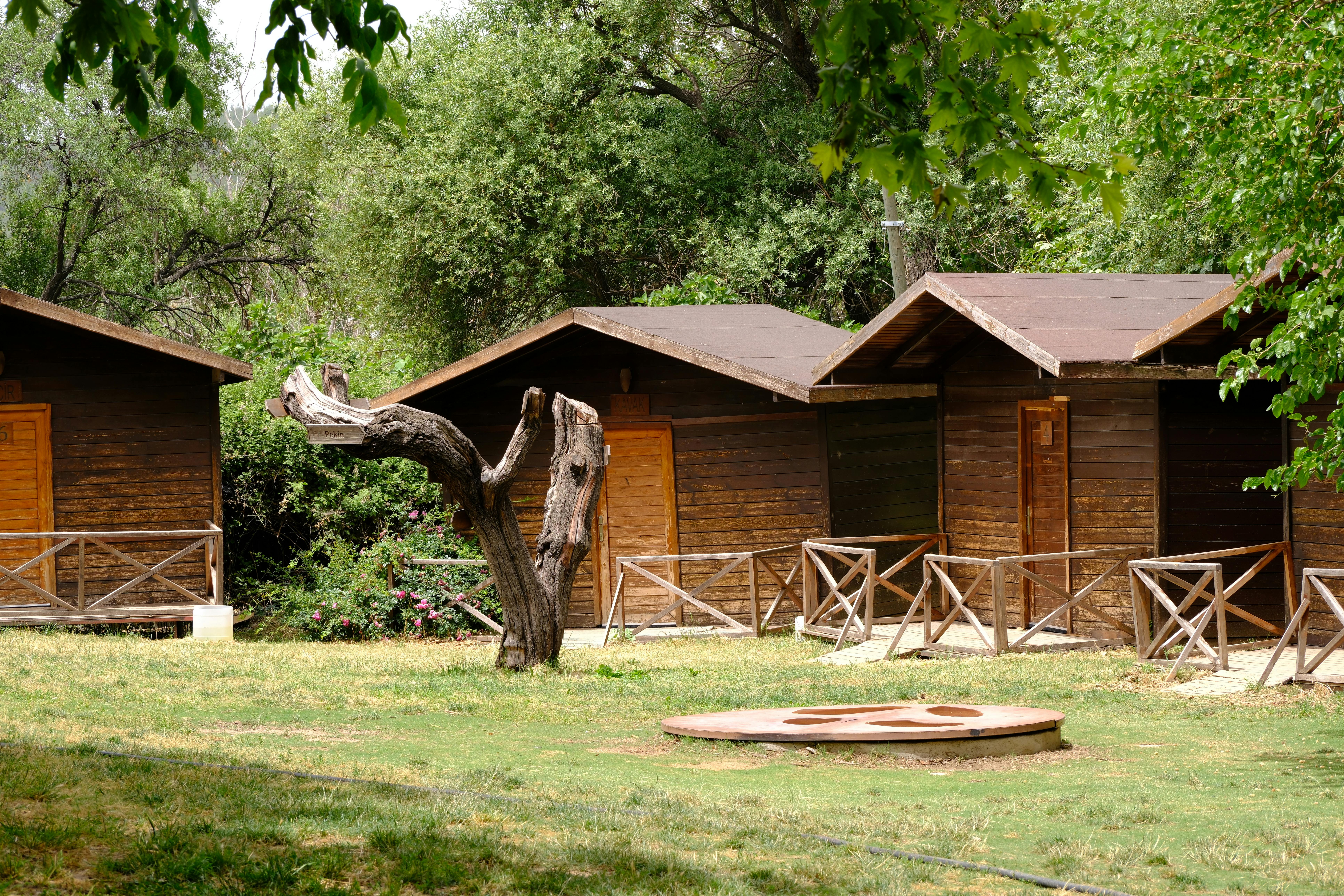
For many individuals and families, becoming a homeowner is one of the most important financial milestones in life. Property ownership provides stability, security, and long-term value preservation. While traditional real estate purchases through direct sale contracts or mortgage financing are common, cooperative housing in Türkiye continues to be a popular alternative—often perceived as more affordable and more flexible in payment structure.
However, cooperative housing transactions operate under a very different legal framework compared to standard real estate sales. In most cooperative models, the buyer does not immediately acquire an independent title deed. Instead, the buyer typically acquires cooperative membership rights and a future entitlement to a specific housing unit, depending on construction progress, zoning compliance, internal cooperative decisions, and the legal status of the land.
This comprehensive guide explains what cooperative housing is, how construction cooperatives function, what people mean by “cooperative title deed,” and which legal risks every buyer should evaluate before investing. As Bayraktar Attorneys, we advise Turkish and foreign clients on cooperative housing projects by conducting legal due diligence, reviewing agreements, and protecting clients’ rights throughout the entire legal process.
What Is a Cooperative House in Türkiye?
A cooperative house refers to a housing unit acquired through a cooperative structure rather than a conventional purchase contract. Typically, a group of individuals establishes a housing cooperative to collectively finance and develop a residential project. The cooperative acquires land, commissions construction, manages payments, and eventually allocates completed units to members.
Legally speaking, the cooperative is a separate legal entity. The land is usually registered under the cooperative’s name, construction agreements are signed by the cooperative, and members gain rights based on cooperative membership and official cooperative resolutions. Therefore, cooperative housing is not simply a “real estate sale”; it is a legally structured long-term relationship that requires careful analysis and documentation.

Why Cooperative Housing in Türkiye Remains Popular
Cooperative housing in Türkiye is often preferred because it may provide access to homeownership at lower initial cost. Payment schedules are usually installment-based and aligned with construction phases. This structure can allow buyers to participate in a project without needing immediate full financing or bank loans.
That said, cooperative housing also carries governance and financial risks. If the cooperative lacks transparency, faces funding shortages, or fails to comply with legal construction and zoning requirements, members may experience delays, additional payment demands, or even loss of investment. This is why buyers must treat cooperative housing as a serious legal transaction requiring a strong legal strategy.
How Construction Cooperatives Work in Türkiye
Most housing cooperatives follow a structured operational timeline. The cooperative first acquires land and secures zoning feasibility. Then it prepares architectural plans, obtains construction permits, selects contractors, and begins building. Throughout this process, the cooperative collects payments from members and manages the project budget.
Decisions are typically made through cooperative bodies, including the board of directors and the general assembly. These internal decisions can directly affect unit allocation, payment obligations, construction scheduling, and eventual title deed transfers. Because the cooperative’s internal governance has legal consequences, reviewing cooperative documentation is essential before purchasing membership rights.
How to Purchase a Cooperative House: Step-by-Step Legal Process
Legal Due Diligence Before Any Payment
The most important step in purchasing cooperative housing is conducting proper legal due diligence. Many disputes in cooperative projects occur not because the buyer fails to pay, but because the cooperative has underlying legal problems such as land encumbrances, unresolved contractor disputes, zoning violations, or significant debts.
A proper due diligence review should cover the cooperative’s charter, corporate status, governance history, financial liabilities, general assembly decisions, and any ongoing lawsuits. It should also include a full land registry review to identify mortgages, liens, attachments, annotations, and third-party rights that could prevent future title deed transfers.
At Bayraktar Attorneys, we strongly recommend completing legal due diligence before signing any agreement or transferring funds.
Membership Transfer: What the Buyer Actually Purchases
In many cooperative housing transactions, the buyer does not purchase the apartment directly. Instead, the buyer purchases a cooperative membership share from an existing member. This means the buyer acquires the member’s rights and obligations within the cooperative structure.
The transfer must comply with the cooperative’s internal rules and applicable Turkish legislation. In many cases, cooperative approval is required for the membership transfer to become valid. If the transfer is not legally executed and properly recorded, the buyer may face serious risks even if payment has already been made. Therefore, the membership transfer agreement must be drafted clearly, including unit entitlement, payment history, approval obligations, deadlines, and legal remedies.
Unit Allocation and the Importance of Documentation
Housing units in cooperative projects are usually assigned to members through an allocation procedure. Allocation must be supported by legally valid cooperative decisions and documentation. If allocation is unclear or informal, disputes may arise regarding which unit belongs to which member.
For this reason, buyers should ensure that unit allocation is properly documented, supported by official cooperative records, and consistent with cooperative resolutions. Verbal assurances are not sufficient in cooperative transactions.
What Does “Cooperative Title Deed” Mean?
The phrase “cooperative title deed” is commonly used in Türkiye, but it does not refer to a standardized legal title deed type. In practice, it often means that the land is still registered under the cooperative’s name and that independent title deeds for each housing unit have not yet been issued.
This situation may occur when condominium ownership registration has not been established, when occupancy permits have not been obtained, or when the project is still under construction. In such cases, the buyer holds cooperative membership rights and allocation documents rather than an individual title deed registered at the land registry.
Therefore, the key legal question is not whether a “cooperative title deed” exists, but whether the project is legally eligible for independent title deed transfer and whether there are legal barriers that could delay or block registration.
Major Legal Risks in Cooperative Housing Transactions
Cooperative Debts and Financial Exposure
One of the most underestimated risks in cooperative housing is the cooperative’s financial status. Cooperatives may have bank loans, contractor debts, tax liabilities, or unpaid public obligations. These liabilities can directly affect construction progress and the ability to transfer title deeds.
Additionally, cooperatives may impose additional payments on members if construction costs increase or financial planning fails. Buyers should review financial records carefully and ensure they understand whether additional payment obligations may arise.
Land Registry Risks: Mortgages, Liens, and Encumbrances
Even if construction progresses smoothly, title deed transfer may become legally impossible if the land is burdened by mortgages, liens, attachments, or third-party annotations. These encumbrances may arise from cooperative borrowing, contractor disputes, or enforcement proceedings.
A land registry investigation is essential before purchase and should be continuously monitored throughout the project. Without this, buyers may later discover that the property cannot be transferred to their name.
Zoning and Occupancy Permit Problems
A cooperative project may be completed physically but still fail to obtain required permits due to zoning violations or administrative deficiencies. One of the most critical documents is the occupancy permit. Without it, condominium ownership registration may be delayed, and utilities subscriptions may become complicated.
Properties without proper administrative compliance can lose market value and become difficult to sell or mortgage. This is why zoning and permit verification must be treated as a core part of the legal process, not as a final administrative step.
Governance and Internal Disputes
Cooperatives depend heavily on internal governance. Mismanagement, lack of transparency, or unlawful general assembly decisions often lead to disputes among members. These disputes can cause project delays, financial instability, and litigation.
Before investing, buyers should review cooperative governance records, including general assembly minutes, audit reports, board decisions, and any evidence of internal conflict.

Can Foreign Nationals Buy Cooperative Housing in Türkiye?
Foreign nationals can generally acquire property in Türkiye under specific legal rules. However, cooperative housing adds complexity because the buyer initially acquires membership rights rather than immediate property ownership.
Some cooperatives may restrict foreign membership in their internal rules. Additionally, foreign ownership restrictions may apply at the title deed stage depending on location and legal classification. Therefore, foreign investors should obtain legal advice before entering cooperative membership agreements to ensure that the project can legally deliver final title deed transfer.
Key Documents to Review Before Buying Cooperative Housing
Before investing in cooperative housing, buyers should ensure that documentation is complete, legally valid, and consistent. Key documents include the cooperative charter, membership transfer agreement, allocation documentation, land registry records, zoning documentation, construction permits, contractor agreements, and payment history.
In cooperative transactions, missing or inconsistent documentation is one of the main causes of legal disputes and financial loss.
Dispute Resolution and Legal Remedies
Disputes in cooperative housing may arise from unit allocation conflicts, unlawful cooperative decisions, membership termination, failure to transfer title deeds, or disagreements regarding additional payment obligations.
Legal remedies may include formal notices, internal cooperative objections, and court proceedings. Since cooperative disputes are procedural and document-driven, early legal intervention is often the most effective way to protect the buyer’s rights.
Legal Support by Bayraktar Attorneys
Cooperative housing can be a cost-effective and realistic route to homeownership, but it requires careful legal planning. This model is not only a property transaction—it is a legally regulated cooperative relationship with long-term rights and obligations.
As Bayraktar Attorneys, we provide comprehensive legal services for cooperative housing transactions, including cooperative and land due diligence, agreement drafting and review, title deed strategy planning, zoning and permit verification, and dispute resolution representation.
Recently Added Blogs



.png)
.png)
.png)
.png)
